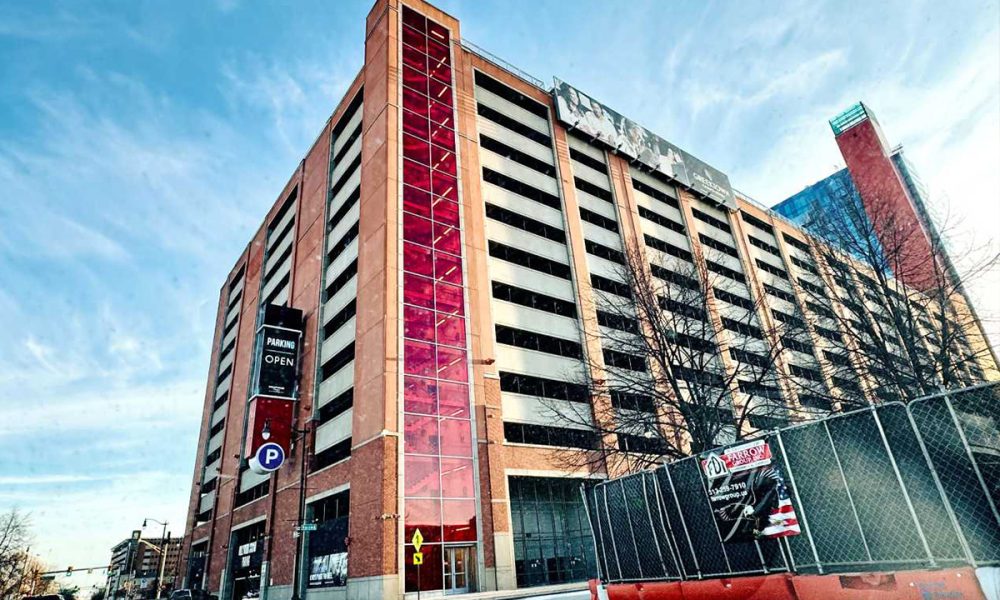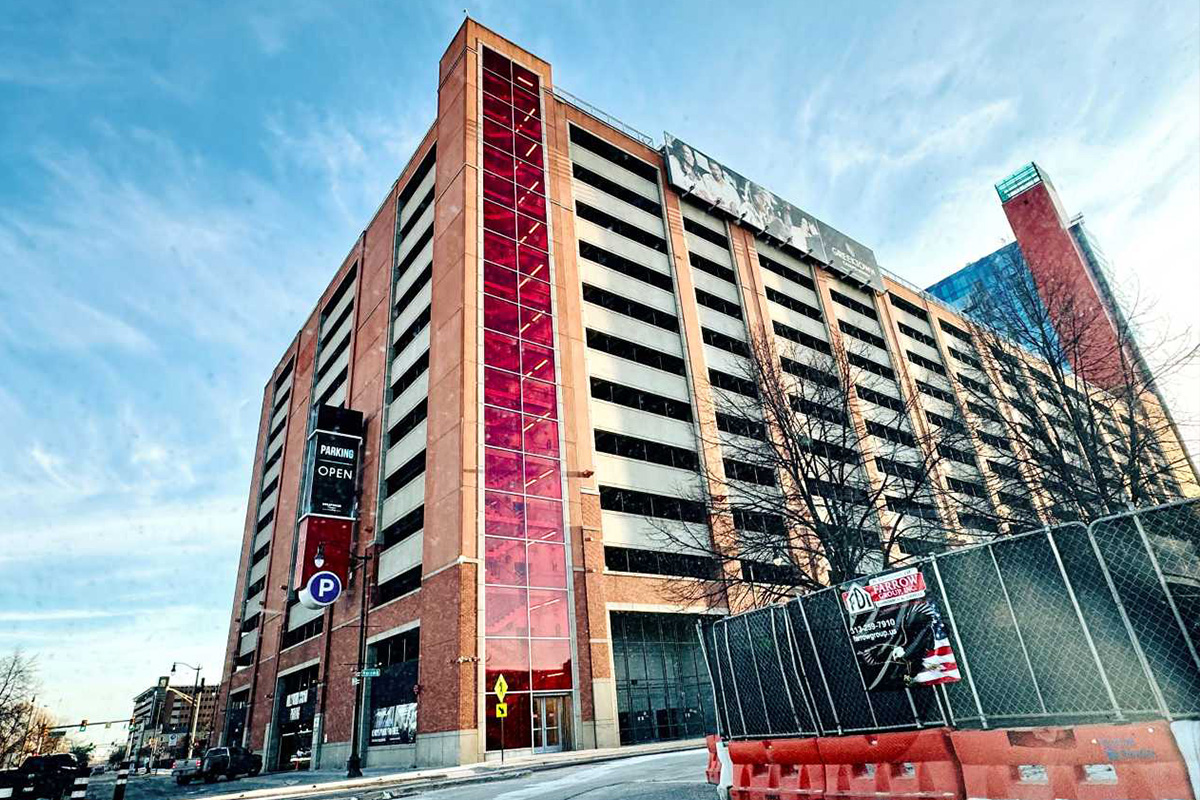

Latest News
SWEET TREATS SHINE IN PRAGMATIC PLAY’S CANDY STARS™
Pragmatic Play, a leading content provider to the iGaming industry, mixes the shiniest stars with colourful sweet treats in Candy Stars™.
A stunningly vibrant 5×3 reel set sees simple yet engaging action unfold as sweet symbols of various shapes and sizes form matching combinations, with a potential 576 ways to win.
These are joined by sticky wild symbols, which can be landed on the top reel and remain in place with an increasing multiplier of 1x for every win they are a part of.
A tumble mechanic ups the action ante as each win initiates cascading symbols, with new replacing old for additional wins.
Landing three diamonds awards players eight free spins, where the wilds have been upgraded to have their multiplier doubled after each win they are a part of – up to a maximum of 128x!
An incredibly bright, sparkling presentation accompanied by toe-tapping dance music surrounds the tumble and sticky wild action that is sure to serve up a delicious treat for players.
Detroit commercial casinos
Detroit Casino Revenue Finds a Balance as Michigan Online Casinos Surge

There’s no denying that Michigan online casinos are still in a growth pattern.
Revenue records seem to be set almost every month, and yearly projections don’t seem to have a limit.
While the iGaming landscape continues to thrive, the three Detroit commercial casinos have found a leveling off point.
Though the three locations haven’t been able to approach the revenue totals they hit prior to the pandemic, there’s still steady cash flow coming in despite a lot of obstacles over recent years.
Detroit’s 2025 Revenue Just Below 2024
Detroit has three commercial casinos that operate in the downtown area. They are the MGM Grand Detroit, MotorCity Casino, and Hollywood Casino at Greektown.
The 2025 revenue for the three casinos through seven months has been similar to what they have seen in recent years. Overall, it is down less than a percentage point compared to 2024, but three of the seventh months have seen revenue growth year over year.
The data suggests that 2025 has been more consistent with its revenue than 2024. The high this year wasn’t quite as high, but the low also wasn’t nearly as low.
Detroit Levels Off as Online Casinos Grow
Prior to the COVID-19 pandemic, Detroit was seeing record revenue for its three casinos. The $1.45 billion it did in 2019 was an all-time high.
The slow return from the pandemic eventually led to a leveling off for Detroit, as yearly revenue since 2020 has ranged from $1.22 billion to $1.28 billion.
As that has played out, online casinos debuted in Michigan in January 2021. The first year of revenue was $1.11 billion, but has since more than doubled that total in 2024.
Through seven months of 2025, Michigan online casinos are already at $1.72 billion in revenue. That alone is more than all of 2021 or 2022, respectively. After August’s numbers come in, the total is likely to have surpassed 2023’s mark as well.
This year’s OC revenue is already over 27% ahead of where it was a year ago. Through July, Michigan’s iGaming had generated $1.35 billion in 2024.
Through seven months, the state is averaging over $245 million in monthly online casino revenue. Prior to 2025, Michigan had never hit $245 million in revenue for any month in its online casino history.
Should Michigan continue this pace, it will surpass $2.9 billion in annual iCasino revenue. The last quarter of the year has trended toward being the strongest revenue months each year, so $3 billion isn’t out of the question. If the 27% growth rate holds, the state would hit $3.1 billion in 2025 revenue.
Each new record just brings in more tax revenue for the state as well. Initial projections when Michigan pursued online casinos was around $40 million in annual tax revenue. The first year of 2021 brought in $201.7 million in state tax revenue and another $77.6 million in local taxes.
In 2024, Michigan online casinos generated $451.4 million in state tax revenue and another $168.7 million in local taxes. This year’s iGaming has already generated $330.0 million in state tax revenue and another $124.7 million in local taxes.
Source: saturdaytradition.com
The post Detroit Casino Revenue Finds a Balance as Michigan Online Casinos Surge appeared first on Gaming and Gambling Industry in the Americas.
Caio Vianna
Brazil Congress Told to Focus on $6.4B Gambling Revenue Losses to the Black Market

Brazil’s Permanent Subcommittee on Sports Betting Regulation has stressed that greater focus must be placed on the massive revenue losses to the illicit black market.
In recent days, a public hearing in Congress detailed that the underground gambling sector is believed to generate around R$35 billion ($6.4 billion) per year. That is thought to equal around half of all online gambling activity in Brazil.
There was a consensus at the hearing that the primary challenge facing the South American nation was not the regulated gambling industry, but the proliferation of illegal platforms, and the absence of any controls or player protections.
As with all underground gambling networks, the government in Brazil does not receive any tax revenues from these operations.
Participants at the hearing included the Brazilian Institute for Responsible Gambling (IBJR), together with lawmakers, industry representatives, and other authority bodies.
Fernando Vieira, CEO of the IBJR, noted that the illegal market’s revenue rivals the legal market’s R$38 billion figure, causing the government to lose approximately R$10.8 billion ($2 billion) in tax revenue annually due to untaxed operations.
The discussion placed great emphasis on the fact that illegal platforms operate without any oversight, age controls, or user protections, which only increases the risks of underage gambling, fraud, and other illicit activity.
Last month, the IBJR presented new data showing that the Central West region uses illegal betting platforms more than anywhere else.
Since last year, authorities in Brazil are estimated to have blocked around 17,000 unauthorized websites, averaging over 1,700 per month.
However, the Brazil Congress hearing was told that efforts must be increased to combat the illegal market, especially with the funds that are collected from the regulated sector.
Deputy Caio Vianna, President of the Subcommittee, who initiated the hearing, called for “financial suffocation” of illegal operators by targeting their payment methods, as shutting down websites alone is insufficient due to their ability to quickly relocate under another jurisdiction.
There was also significant opposition expressed toward the proposed measure, currently under review in the Brazil Congress, to increase the tax on gross gaming revenue from 12% to 18%, which the IBJR warns could weaken the legal market and create further momentum for the growth of illegal platforms.
IBJR chief Viera added, “This is a turning point. If Brazil shifts just 5 percentage points from the illegal to the regulated market, the additional revenue could reach R$1 billion per year.
“The solution is not to hastily increase taxes, but rather to invest in oversight, monitor financial transactions, certify suppliers, and raise consumer awareness. Only then will we reduce the scale of illegality and consolidate a strong and sustainable regulated sector.”
Source: readwrite.com
The post Brazil Congress Told to Focus on $6.4B Gambling Revenue Losses to the Black Market appeared first on Gaming and Gambling Industry in the Americas.
Gambling in the USA
Pennsylvania iGaming Records $228.3M in July 2025

Pennsylvania’s online casinos soared in July 2025, delivering adjusted gross revenue of $228.3 million. This figure marks the second-highest monthly iGaming total ever reported by the Pennsylvania Gaming Control Board.
It follows the record $238.2 million in March. The revenue reflects a 30.9% year-over-year boost, underscoring broader growth trends in the digital gaming space. The state’s real money online casino market continues expanding as player engagement strengthens.
The surge came as Hollywood Casino at Penn National Race Course and partners led the state with $87.8 million, registering a 37.2% increase over last year. Valley Forge Casino Resort followed with $61.0 million, marking a 34.1% rise. Rivers Casino Philadelphia clocked in $37.8 million, up 26.6%. Meanwhile, Caesars Interactive contributed $10.5 million, up 10.8%.
Tax revenues surged alongside iGaming. The Commonwealth collected $67.4 million in state taxes from online casino play in July. Local tax and county grants added $36.5 million, amplifying the fiscal impact.
Pennsylvania’s total gambling revenue, including land-based casinos and sports betting, totaled $557.7 million, rising 11.4% year-over-year. The iGaming segment alone increased 30.9%, making it a primary growth engine.
Slots dominated iGaming revenue with $177.2 million, followed by table games at $48.5 million and poker at $2.5 million.
Pennsylvania’s sports betting market delivered $40.6 million in revenue during July, a 5.2% increase from last year. Online wagering accounted for $37.9 million, while retail sportsbooks added $2.7 million.
The rise came despite a 0.5% dip in handle, which closed at $412.5 million. Betting from online sportsbooks produced $392.6 million of that total, with retail wagering contributing $19.9 million. The statewide hold rate stood at 9.84%, reflecting stronger margins.
FanDuel, partnered with Valley Forge Casino Resort, led the market once again. It generated $15.5 million in revenue from a $140.9 million handle, posting an 11.00% hold. DraftKings and Hollywood Casino at the Meadows followed, collecting $11.3 million from $112.3 million, equal to a 10.06% hold.
Fanatics, partnered with Hollywood Casino York, placed third with $2.7 million from a $28.4 million handle, producing a 9.51% hold. Morgantown and BetMGM secured $2.1 million on a $33.3 million handle for a 6.3% hold.
Rounding out the top five, ESPN Bet with Hollywood Casino at Penn National reported $1.7 million from $18.7 million, giving a 9.09% hold.
The data underscores how Pennsylvania’s sports betting operators are strengthening profitability even when overall wagering slows. Analysts expect momentum to accelerate once football season begins, driving higher handles and further testing operator margins.
The post Pennsylvania iGaming Records $228.3M in July 2025 appeared first on Gaming and Gambling Industry in the Americas.
-

 gaming3 years ago
gaming3 years agoODIN by 4Players: Immersive, state-of-the-art in-game audio launches into the next generation of gaming
-
EEG iGaming Directory8 years ago
iSoftBet continues to grow with new release Forest Mania
-
News7 years ago
Softbroke collaborates with Asia Live Tech for the expansion of the service line in the igaming market
-
News7 years ago
Super Bowl LIII: NFL Fans Can Bet on the #1 Sportsbook Review Site Betting-Super-Bowl.com, Providing Free Unbiased and Trusted News, Picks and Predictions
-
iGaming Industry8 years ago
Rick Meitzler appointed to the Indian Gaming Magazine Advisory Board for 2018
-
News7 years ago
REVEALED: Top eSports players set to earn $3.2 million in 2019
-
iGaming Industry8 years ago
French Senator raises Loot Boxes to France’s Gambling Regulator
-
News7 years ago
Exclusive Interview with Miklos Handa (Founder of the email marketing solutions, “MailMike.net”), speaker at Vienna International Gaming Expo 2018









